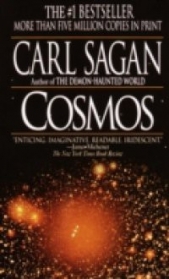Образ человека будущего, Том 7 (СИ)

Образ человека будущего, Том 7 (СИ) читать книгу онлайн
На основе предшествующих трех монографий Международное философско-космологическое общество начало выпуск научного журнала Future Human Image, в котором представлены современные мировые исследования образа человека будущего. Журнал охватывает области нейронаук, педагогики, философии образования и психологии. В данном выпуске представлены работы специалистов из США, России, Украины, Бразилии, Южной Африки, Испании, Казахстана. Журнал публикует исследования на русском, английском и украинском языках
Внимание! Книга может содержать контент только для совершеннолетних. Для несовершеннолетних чтение данного контента СТРОГО ЗАПРЕЩЕНО! Если в книге присутствует наличие пропаганды ЛГБТ и другого, запрещенного контента - просьба написать на почту [email protected] для удаления материала
Translation of outdated "educational knowledge" from previous generations to current, on what contemporary education is basically oriented, does not mean that it helps to solve the pressing problems of today, and even more tomorrow. The reason for this situation is the fact that the existing knowledge, skills and achievements of culture and circulating in education, are not just outdated, as already discussed above. They are a reflection of a fundamentally different model (form) of social development - model of unsustainable development - USD. Mechanism of accelerated futurization of education and formation of anticipatory education must be included. These two processes in education are very closely correlated with the processes of globalization of education and the formation of global education (globalization with futurization and the emergence of anticipatory education with the formation of global education). Educational process becomes gradually and increasingly a leading innovative proactive and in addition global process and rapidly include all, what does not exist yet but will or may occur in the future.
It is obvious, that this task was not set by pedagogical sciences and other sciences, studying the educational process. This may be absurd, a kind of nonsense for the traditional thinking of the teacher. How to teach what does not exist yet and why new knowledge should appear in education?
However, the inappropriateness of such a question is absent, if you carefully study the process of implementation of the future and new to the educational process.
If translation of outdated knowledge in the educational process will not help the transition to a sustainable global future, it means that process should be radically changed, making it innovative largely, adapting traditional linearity and conservativeness of pedagogical mind-set.
For the survival of humankind and its transition to sustainable development, it is important to include proactive factors and mechanisms of this process, to predict and forecast the future. Moreover, if it is clear that innovative transition from unsustainable development to sustainable is necessary, it is important to bring together all existing and possible forms and trends, which can solve this basic civilizational issue of the third millennium. In fact, if pedagogical science was not based on "historical" and "translational" model of education, but was based on information and ontological model of the educational process and it would become the official global setting, it could be possible to put the question earlier about the total innovatization and futurization of education and especially the development of anticipatory and global education.
In the educational process information should be transmitted not only from past generations to the present, but also completely new information from the not yet existing future generations to the present (in the form of virtual models of study of future), as well as information about the future from the current generations. In this proposed innovative and information virtual model of the educational process past, present and future will be connected to one systemic temporal integrity. However, here comes the next question: how to obtain new information from the future and about the future?
Such information and educational virtual model contradicts not only a traditional pedagogical science, but also generally contemporary science, which relies on the facts, practice, truth and other similar concepts that form the foundation of the study process. It is obvious that the knowledge
Future Human Image. Volume 7, 2017 147
Education and Globalistics by Arkady Ursul and Tatiana Ursul
about the future cannot contain the truth and facts, which are checked in practice in past and present. In this sense, future is detached from official (factual) science, although the prediction and forecasting is recognized as a function of the theoretical level of knowledge. However, if you look closely at what is written in this case about the study of the future, actually main focus is on a linear vision of the temporal process (extrapolation of evolutionary historical trends into the future).
This means that in study of the future and its implementation in the educational process new principles, ways and forms of exploration of the future will be realized.
One of the fastest growing forms is the modelling of what may happen in the future, i.e. proactive modelling in its various forms and especially using new information technologies. This is the way of implementation of the future in innovation and the educational process, which involves the computerization, because only at the information level it is possible to make and study models of the future as regulatory (such as strategies of sustainable development), as research forecasts and predictions. There are possible as linear ways to the future from the past and present, as nonlinear innovative breakthroughs to the extent that it is possible to create models without prototypes in the past or analogues in the present.
Emphasis on the past was the "axiom" of pedagogical activity: textbooks, teaching aids, state educational standards, programs, etc., which are guided by "established" knowledge and other similar information products. If over 95% of knowledge contain information about the past in contemporary science (and mean first of all social sciences), the "educational knowledge" increases this percentage almost up to one hundred.
Schematizing, we can say that in most of cases the teacher was "a transmitter" of outdated information to students, while students were recipients of this information, which they had to memorize.
Of course, such a scheme of the pedagogical process is very rough and simplified, but it is important to show that such a scheme did not focus on the main components of the human mind but not on those of its functions that should be developed in the process of the formation of man and his consciousness. Indeed, Aleksey Ivanitsky said, "the basis of consciousness is the idea of renovation, which gives highest meaning to life and determines the constant human desire for novelty" [Ivanitsky, 2004: 720]. Contemporary education, focusing on the past and memorization of it, is detached from the creation of the future and this contradiction must be solved on the way of adaptation of innovative education to the future.
This means that during the further development of innovative processes in education it is appropriate to eliminate significantly temporal asymmetry of past and future in relation to the present and to start formation of consciousness of man in a different direction.
Focus on the past in education and other sphere of human activity is "temporal strategy" of model of unsustainable development. This temporal focus was manifested in preferential formation and existence of means and mechanisms for conservation and storage of information, without which biological and social organisms cannot exist.
If learning of the past was based on memorization, the inclusion of innovative and proactive modelling in the process is based on the principles of more creative process of developing education.























